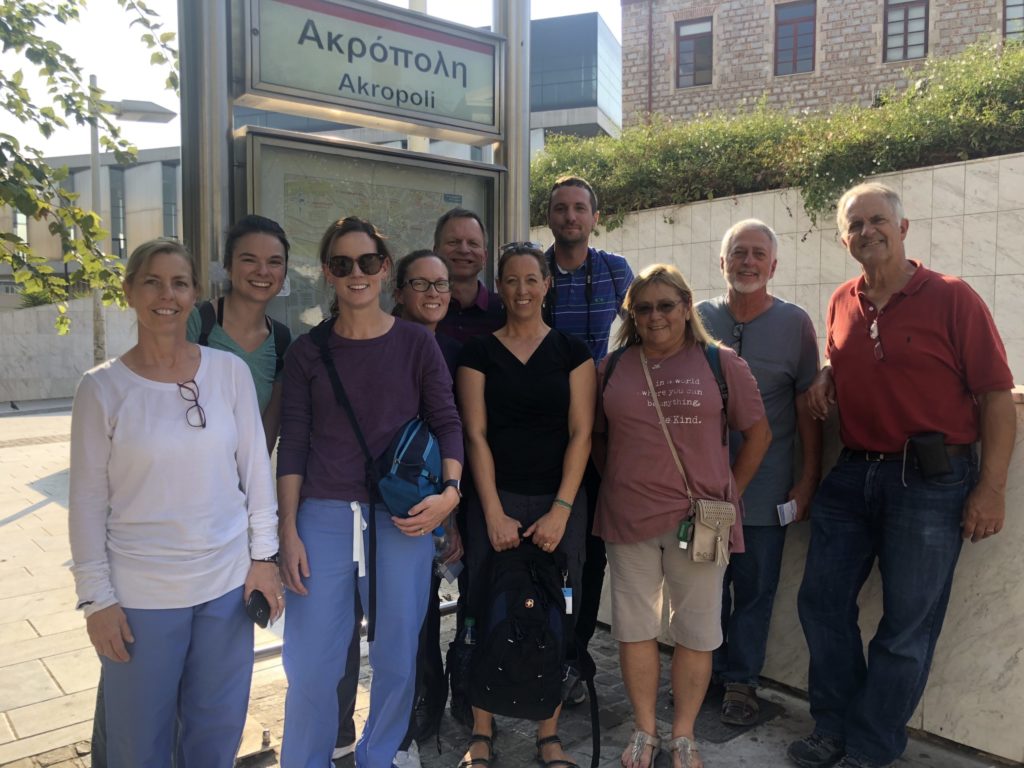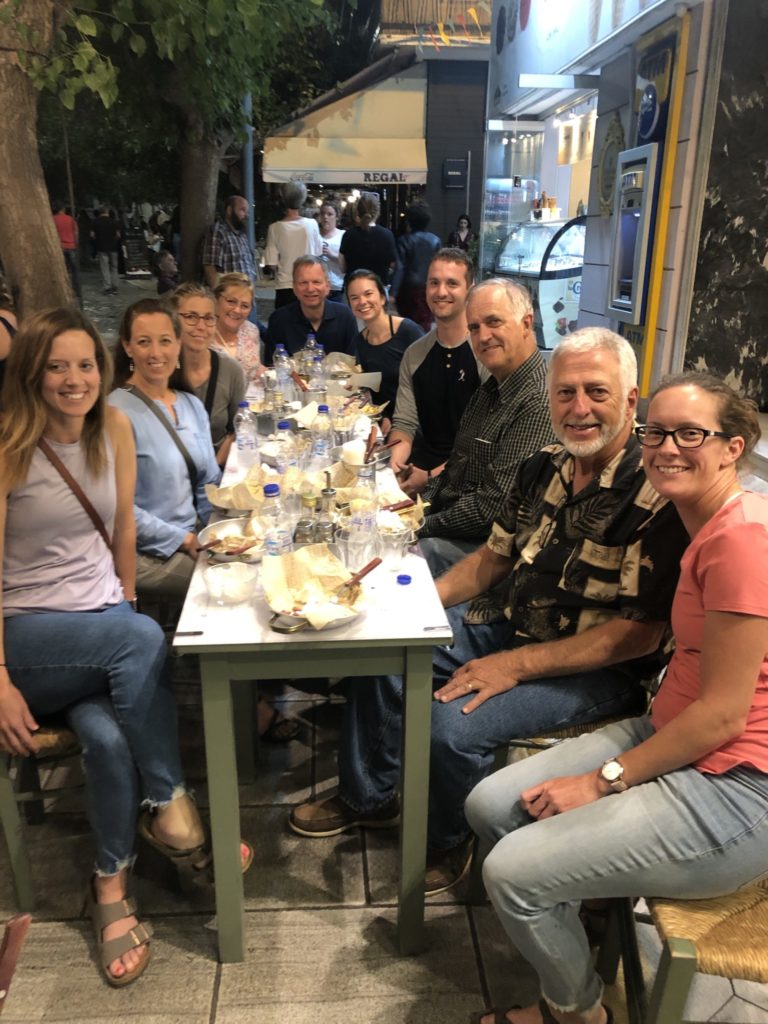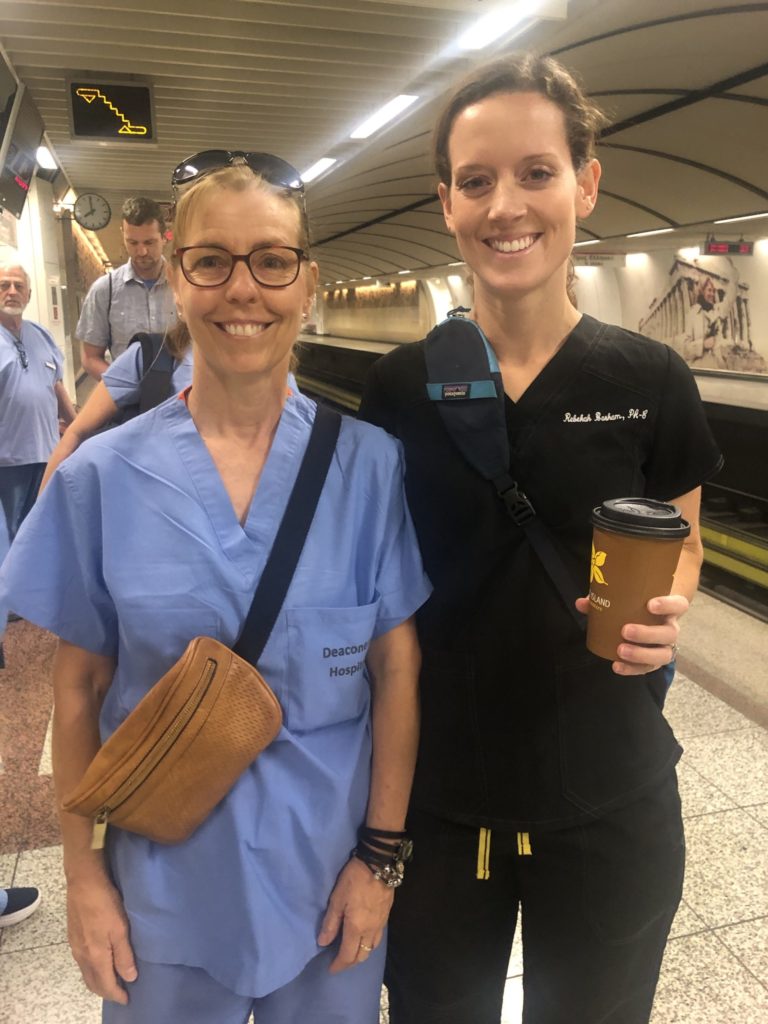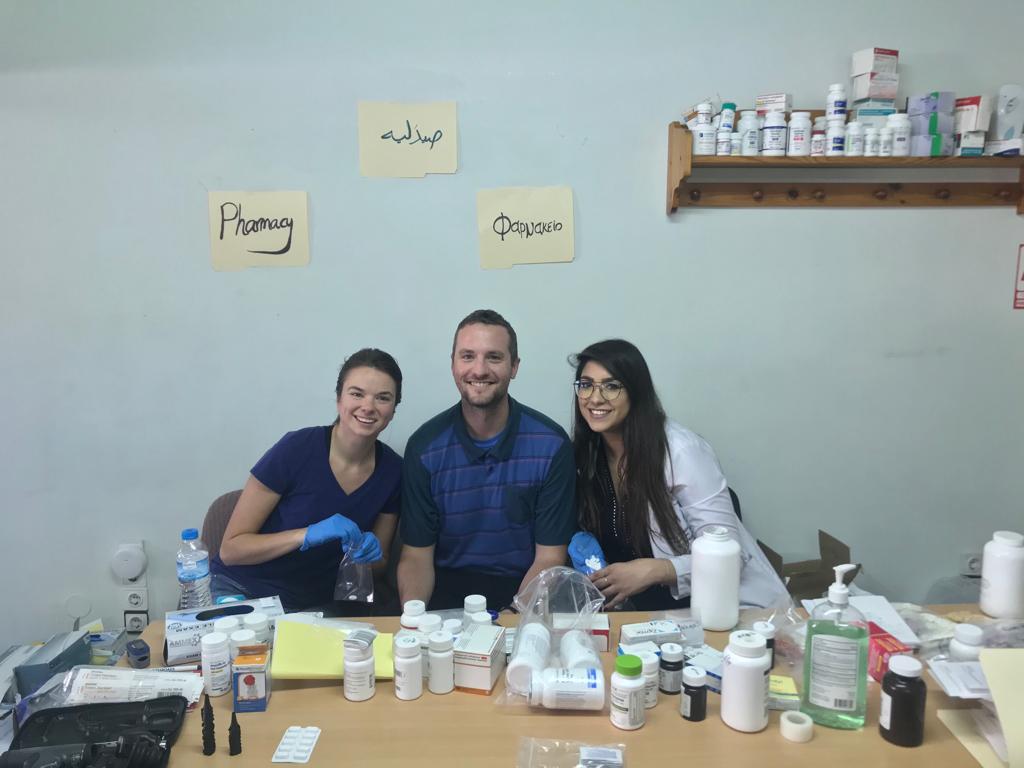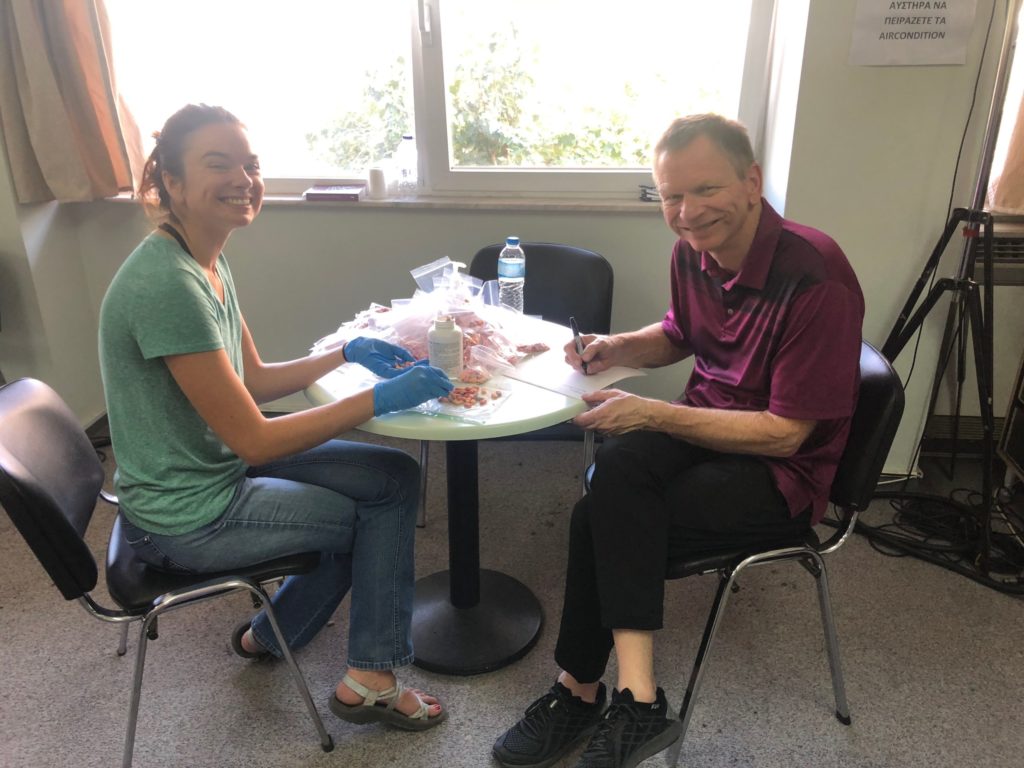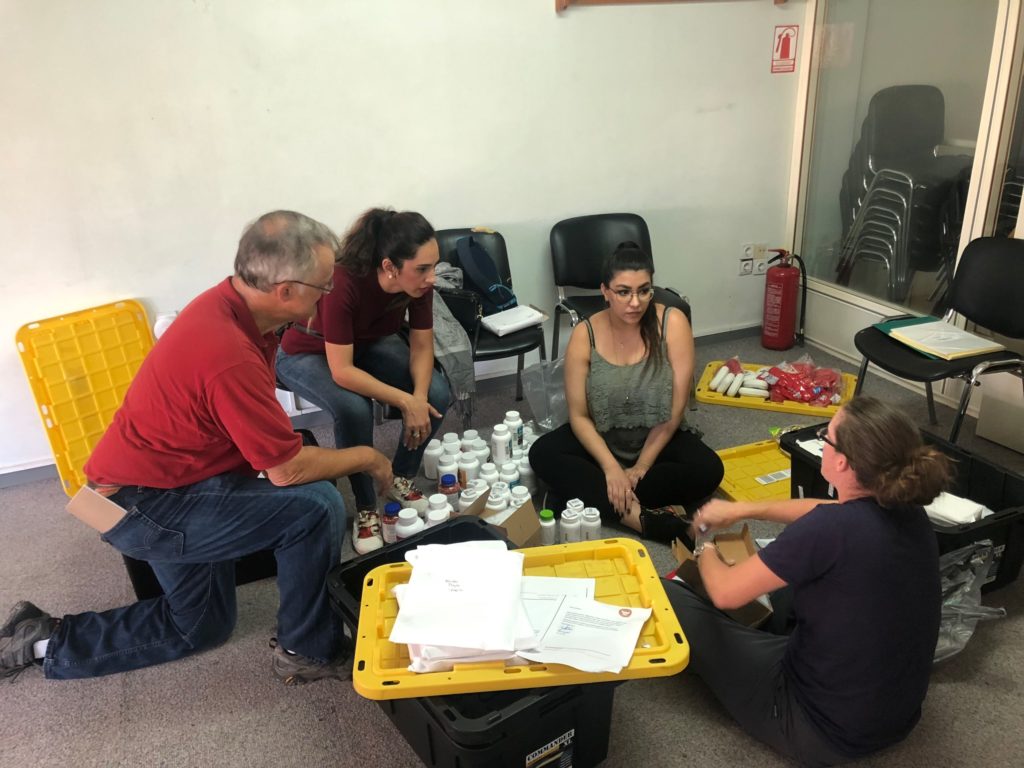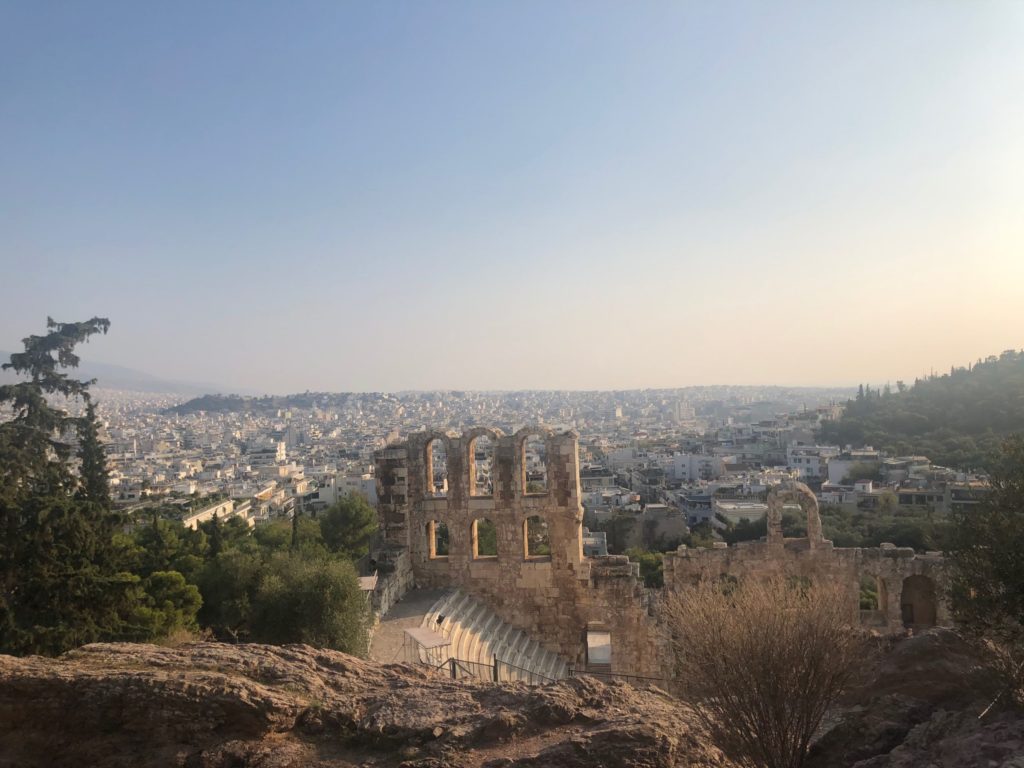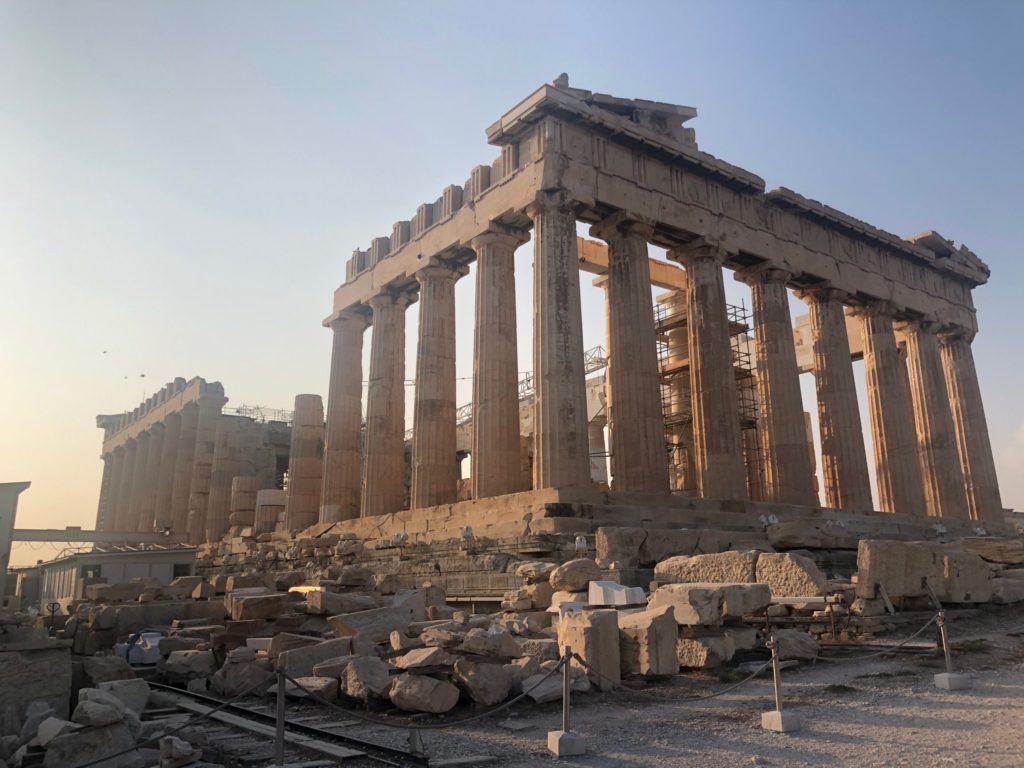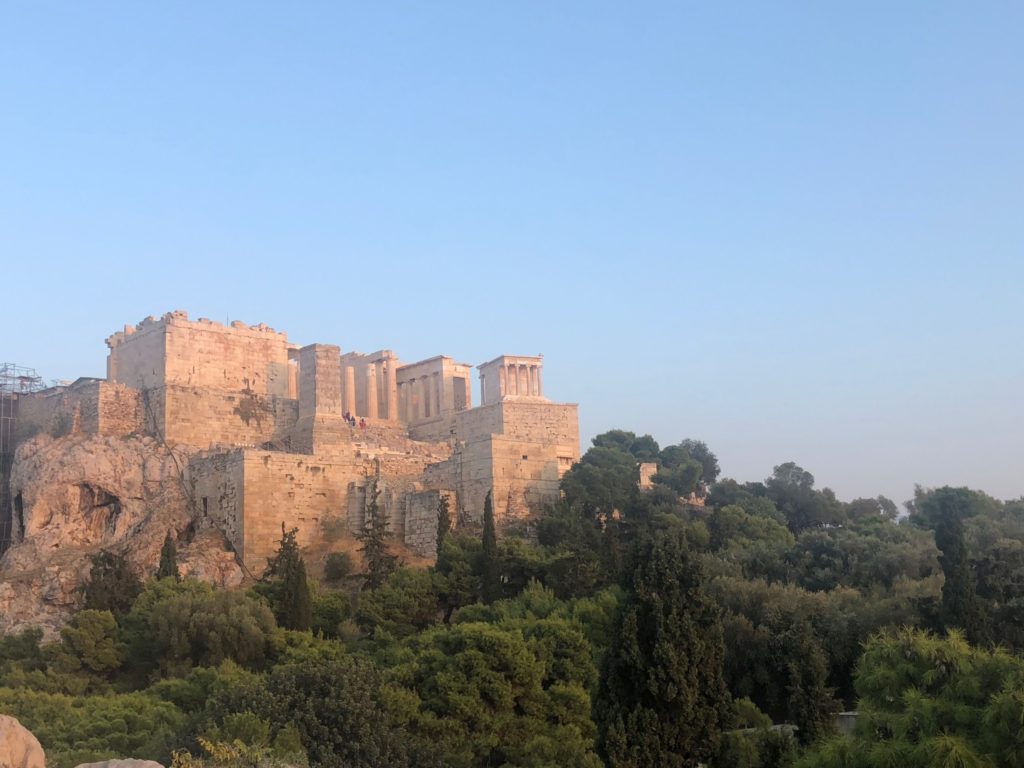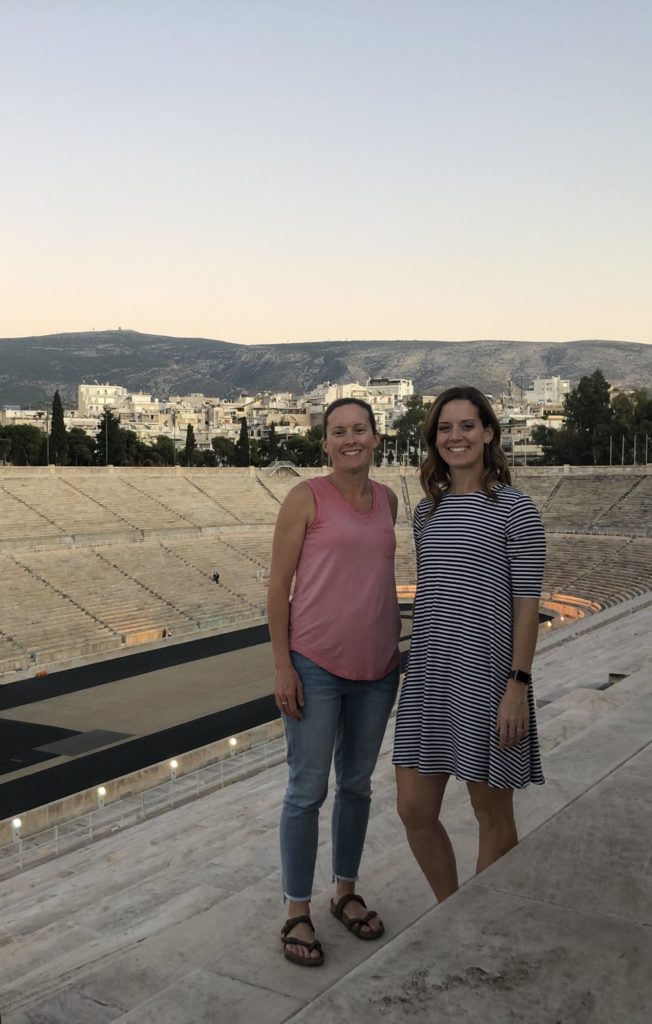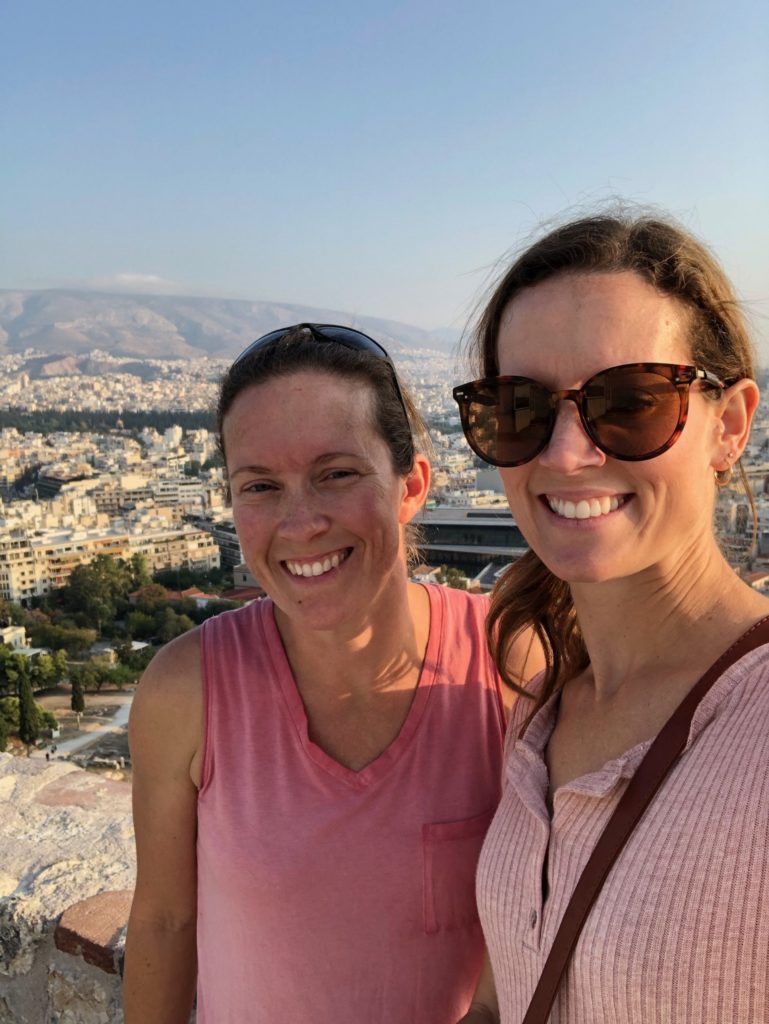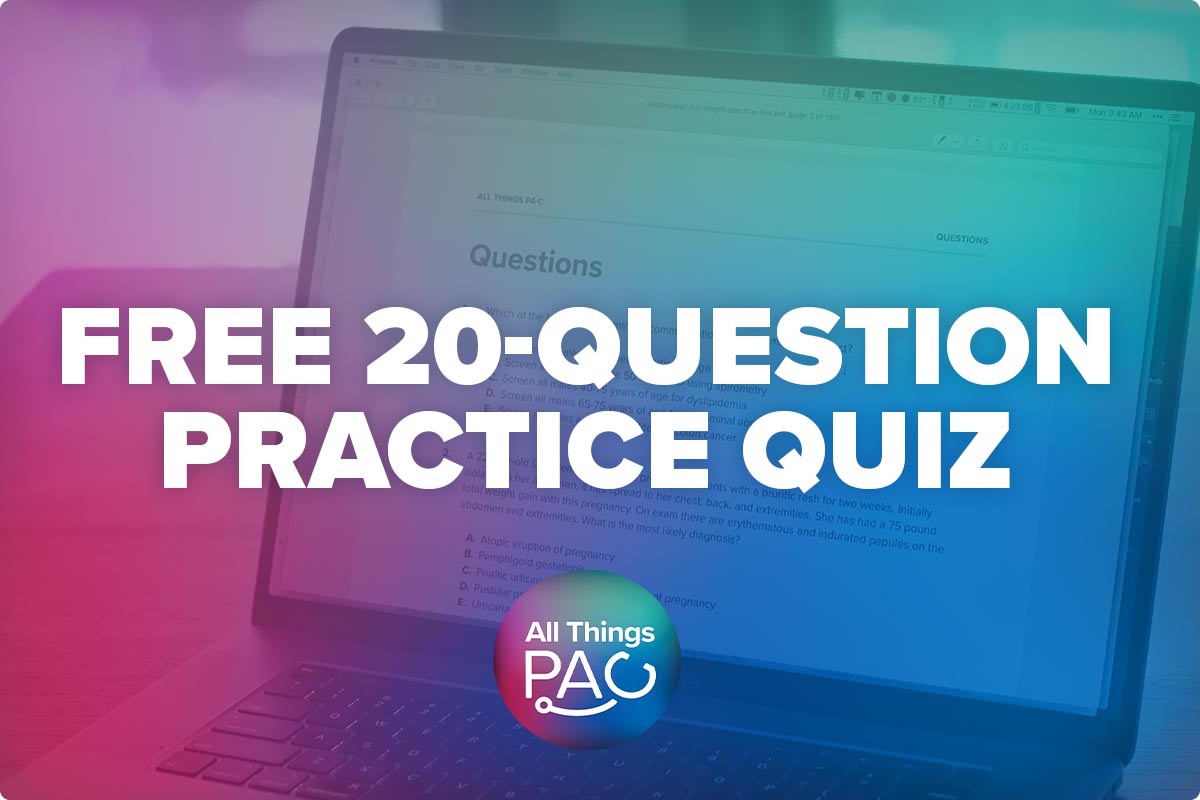I’ve been on two medical mission trips. I was a PA student the first time and traveled with one of our PA professors to a Mexico border city and provided primary care for the poor in that community. The second one was in October 2019, where I traveled with a small team to provide care to Syrian and Middle Eastern refugees settled in and around Athens, Greece.
The first trip I was a participant. I wasn’t involved in the planning, and because I was a student, I didn’t work independently. I basically signed up, paid for the trip, showed up with my passport, and went along. It was an amazing experience and definitely placed on my heart the desire to do a medical mission trip again.
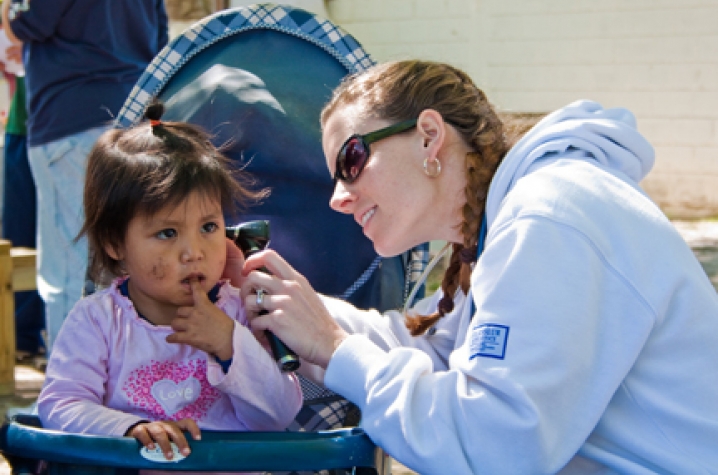
What followed for me, as it does for many new PA grads, is a lot of “life.” New jobs. Moving. Babies. More babies (4 in total). Over the last 8 years since graduating, there hasn’t been a lot of opportunities to pick up and leave my family for 10 days. But now that some of my kids are self-sustaining (to a degree), and my husband and I are more established in our careers, these doors are opening.
All that to say there are seasons for everything, and if medical mission or relief work is something you want to do, it’s ok to wait for the right time.
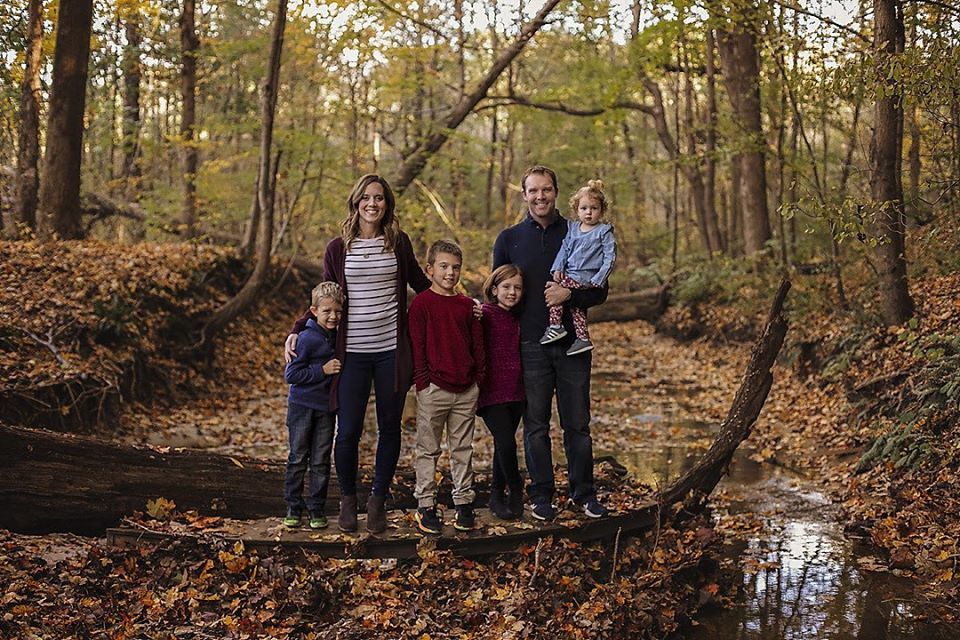
For the Greece trip, I was the medical lead and in charge of planning the entire trip. If you know me, I’m not a detail-oriented person. I more of a big-picture kind of girl. A visionary if you will. So planning an international medical trip was WAY out of my comfort zone. As in, I didn’t know where to start.
How does a medical license work overseas? Is a PA recognized as a provider in Greece? Do we need malpractice insurance? How to you buy medications? How do you bring medications across borders?
I didn’t have a lot of resources and had to figure it out. But somehow It all came together. We took a team of 10; 1 physician, 2 PAs, a PT, 2 nurses, a lab tech, and 4 non-medical people across the world to extend care to those who needed it.
I received so many questions about how I was able to do this. Because there were so many, I’ll share my experience in two parts. I’ll speak more to the planning in this piece and more specifics about the actual trip in Part 2. Finally, I’ll post a summary Q&A post as part 3.
PLANNING THE TRIP
This particular trip was through my church. I’m a member of a nondenominational church of about 4,000, who sponsors several global mission trips yearly. They had not done a medical mission trip for some time, so I was approached about leading one. As I stated before, the timing felt right so I agreed. Especially since the cause was something that had been weighing on my heart for a long time.
Side note, I distinctly remember sitting in a lecture during PA school one day and reading about the new Arab Spring spreading across the Middle East (I know, I should have been paying attention to the lecture). For some reason, it stuck with me and I began to follow the tragic events that would take place in Syria over the next decade. But it all started back in PA school for me… little did I know I would eventually lead a medical trip related to this very issue.
Back to planning.
I was given a contact name of someone who had taken several US medical mission teams to Isreal, Jordan, Greece and Turkey where a large number of Syrian and Middle Eastern refugees have fled and settled over the last 10 years. If you’re not familiar with the Syrian refugee crisis, I recommend you read about it. It’s considered one of the worst humanitarian crises of our time. The city of Athens sees about 1000 refugees a week coming and they need resources, including medical care.
The previous groups my contact worked with were mostly through Global Health Outreach (GHO). I’ll stop here for a minute and make clear this is a Christian organization, and obviously going through my Church was part of a Christian mission as well. My church has two priorities when it comes to missions: Church planting among the least reached and social justice among the most vulnerable.
These issues are dear to my heart as well. My faith is a huge part of my life and one of the driving reasons for me to want to do missions. With that being said, my goal is 100% to serve and love people, not to promote an agenda.
So, if a faith-based organization is not your thing, there are MANY other opportunities out there. I would start by searching on the Physician Assistants for Global Health website.
Back to planning.
GHO had previously taken several teams to Greece so I was able to ask them a lot of questions about planning. But primary what I had to do was
- Build a team of medical and nonmedical professionals
- Determine the goals and objectives of the trip
- Make a budget and assist team members with fundraising strategies
- Lead my team in several formation meeting (a pre-trip meeting where we discuss objectives and prepare mentally and spiritually for the trip)
- Determine the necessary supplies and medications to bring
- Order said supplies and medications
- Determine necessary credentialing
Medications
In our case, we were aware of the number of patients we’d likely see in a day based on how many providers we were bringing, and what type of ailments they would have.
I used the formulary GHO had used and scaled it down to the number of patients my team would likely see. This was still a challenge- trying to figure out what medications to bring. Ultimately it was a large supply of over the counter analgesics, over the counter relief medications, steroid creams, antifungals, antihelmetics, and antibiotics.
We took a modest supply of chronic medications like antihypertensives and diabetes medications, but as you can imagine trying to manage these diseases at a short term acute clinic is not the best. But, we were able to fill some medications for people who were out.
I took a lot of notes while I was there on what we used and didn’t use. In retrospect, I wish we would have brought more acute medications such as cough and cold medicines. I also wish we would have brought enough iron supplements and vitamins to give everyone (we ran out around day 2). We had quite a few antibiotics leftover but packaged them up and left them for the next team. I did take a few vials of Rocephin and we used those for a one or two sick folks we saw. We took one laceration tray and a few procedure supplies, but not much. We ended up using them to do a toenail removal.
If you’re planning a trip and don’t know what to take, I would strongly suggest working with someone who has done a similar trip and using their formulary. Have your team look over it and make sure it’s medications they’re familiar and comfortable with. I also suggest connecting with a local pharmacist in that region. Some of the medications are much cheaper outside of the U.S. and you may be able to order or get supplies once you arrive.
Credentialing
The credentialing process was the most challenging for me. The reason being, there really wasn’t a process and I couldn’t wrap my mind around that. Long story short, people don’t really care about the poor and marginalized. At least in our case, traveling to Greece, there was no formal process to get approval to practice medicine.
We took copies of our licenses to have on hand. We had copies of the formulary and proof of purchase for the medications, and we had notarized letters from the church hosting the clinic stating we were coming to provide humanitarian relief. That was it. And we didn’t end up having to show it to anyone.
Insurance
Several people asked me about liability insurance. That was a concern of ours. I did some research and asked the previous teams who went and other groups who do short term humanitarian trips, and all agreed that malpractice insurance isn’t necessary.
Again, at the root of this, I think it’s because no one really cares about these people. Who cares if they receive bad care or have a bad outcome? I do think being from the U.S. we’re probably a little skewed on this topic because of how litigious our culture is when it comes to medicine.
I did end up finding a group that sells short term medical liability insurance for trips such as these, and to put the providers on my team at ease we purchased policies. They were dirt cheap, about $5 a day so I figured why not, you just never know.
Fundraising
I was fortunate to have someone helping me with logistics like travel arrangements, flights, hotels, so I didn’t have to manage that.
The entire trip costs about $3500 per person. Included in this were travel expenses, food expenses, medication and supply costs, a donation to the church in Athens that provides services and hosts the clinic, and a little to do some tourist activities. Our team had great success with fundraising a lot of this.
The primary source of fundraising was writing letters and personally reaching out to friends and family telling them about the trip. Many people will never hop on a plane, or maybe don’t have skills that are needed, to do something like this. But they still want to help with the cause. By giving money, they feel invested. We had some team members raise above and beyond this amount, which all went to support the medical clinic.
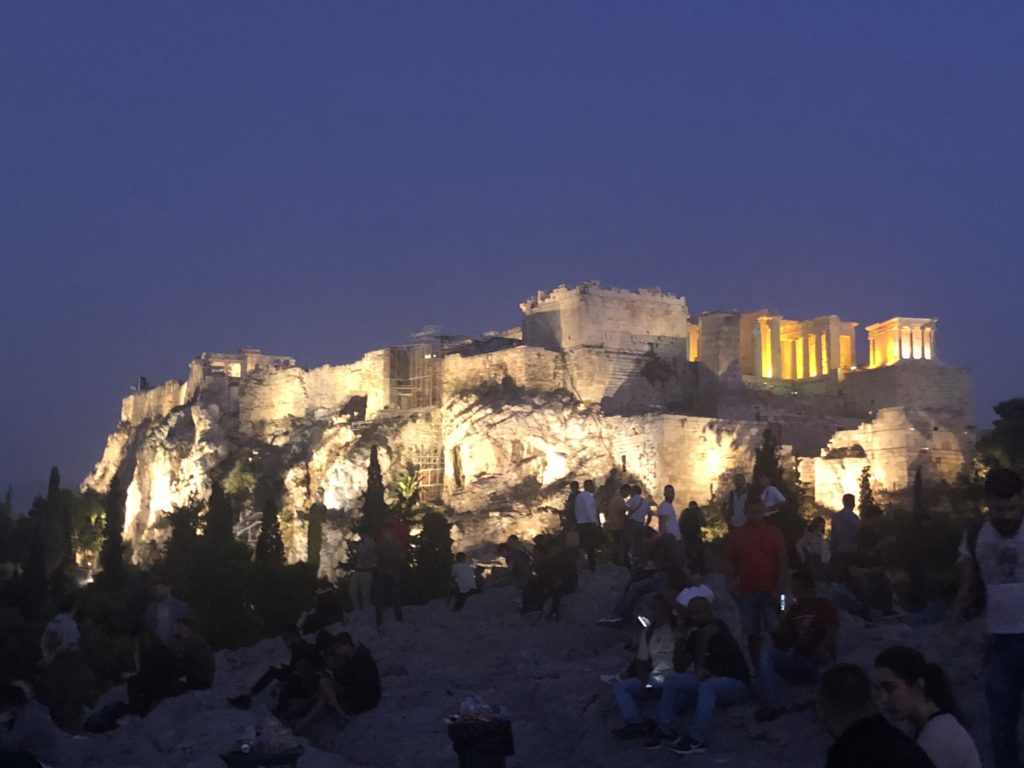
If you’re thinking about organizing a medical mission trip, I hope you find this helpful. It’s just skimming the surface but outlines the big tasks. I suggest that you not reinvent the wheel. Usually, people who have organized mission trips are happy to help. Find an established organization and build off what they’re already doing.
If you just want to go on a medical mission trip, and not organize one, then check out GHO or PAGH, or any number of organizations who are already in the trenches doing the work. Again, there’s no reason to reinvent the wheel and usually, these organizations are careful about who they partner with to provide quality and sustainable care where they go.
Lastly, understand you don’t have to fly halfway across the world to do this. I guarantee your local community has a need for low costs or free medical care. Perhaps there’s a low-income clinic that needs volunteer providers. Maybe you could start a program to provide medications or health education to those in need.
I do encourage you to find some way to give back. I don’t want to speak for everyone, but as a PA I don’t want for much. I have a decent income, a stable profession, and a wealth of knowledge. I feel that I have some responsibility to give back, and I hope others feel that way too.
Stay tuned for Part 2 where I will share more specifics about our experience in the clinic.

